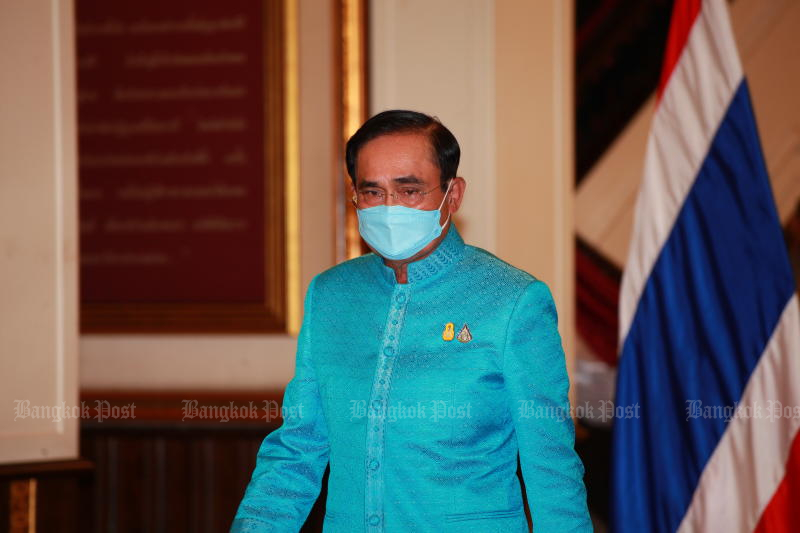
Prime Minister Prayut Chan-o-cha has urged the public not to fret as authorities continue their search for a European man who is believed to have infected the Thai man recently confirmed as Thailand's second monkeypox case.
"The prime minister has asked people not to panic while also warning them to avoid high-risk behaviour, to ensure safety in the capital following the report," said government spokesman Thanakorn Wangboonkongchana.
Monkeypox is not highly transmissible unless there is direct contact with bodily fluids or lesions, or prolonged contact with an infected person.
Generally, most patients recover by themselves at home within two to four weeks, Mr Thanakorn said.
Dr Sophon Iamsirithavorn, deputy chief of the Department of Disease Control (DDC), said an investigation showed the 47-year-old Thai man has always lived in the capital and did not have an inter-provincial travel record.
The man does not have severe symptoms. He is being treated in an isolation ward at Vajira Hospital, Dr Sophon said.
He was likely infected via sexual relations with the European man who he became friendly with on social media, Dr Sophon added.
Dr Sophon said the department is in contact with various embassies to locate the European man, who is believed to still be carrying the virus.
The Thai man lived with 10 family members in a townhouse. They are all considered an at-risk group. Yesterday, the DDC found six more of his relatives living in another house.
None of the 16 people have shown any symptoms yet, however, said Dr Suthat Chottanapund, director of the Institute of Urban Disease Control and Prevention. Their samples were taken and the lab tests will come out soon. All are now being isolated for 21 days, he said.
Yong Poovorawan, chief of the Centre of Excellence in Clinical Virology at Chulalongkorn University, expressed concern that animals may become carriers and pose a risk to humans they come into contact with.
Dr Yong said the number of patients has been increasing since the onset of the outbreak in Africa. Currently, there are more than 17,000 cases across 75 countries -- mostly in the US and Europe.
Citing reports from the World Health Organization (WHO), about 98% of those patients are men.
There have, so far, only been five deaths reported in Africa.
The study noted that most people likely got infected through homosexual encounters and almost 40% developed a rash in their groin area.
The chief concern is that monkeypox is a member of the Poxviridae family, which mostly infects rodent species, although it can be transmitted to humans through bodily fluids, bites and undercooked meat from infected animals.
Now fears are growing that the virus could become equally prevalent in men and women.
"If that happened, it would be difficult to control the spread of monkeypox," said Dr Yong.
"Even if this group of people has a higher risk, the reports should be wary of using suggestive, but not clinically substantiated, language, and the reports must focus on the disease itself and how best to treat it," he added.
Yuthasak Supasorn, governor of the Tourism Authority of Thailand (TAT), said the country's tourism industry has not yet been affected by concerns about monkeypox, after he made enquiries at TAT offices in 29 countries.
